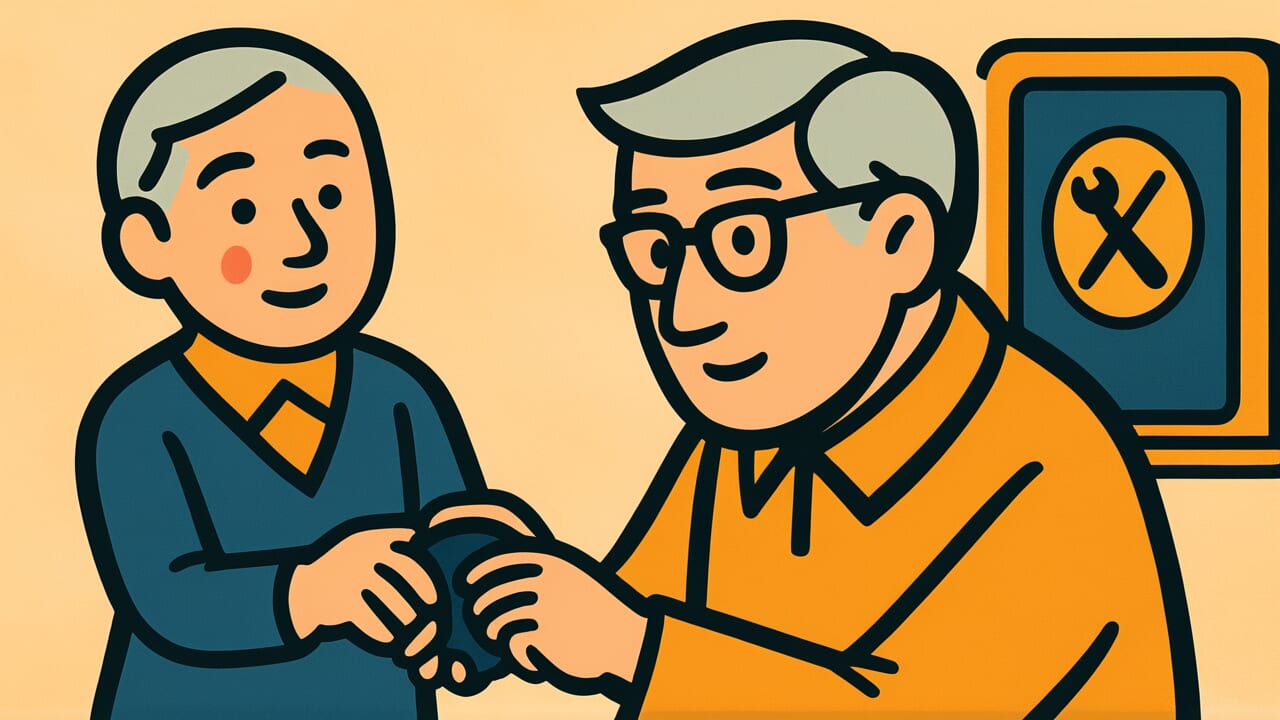How to Read “The skilled are not more skilled than in the past”
Jōzu mukashi yori jōzu narazu
Meaning of “The skilled are not more skilled than in the past”
This proverb shows a simple fact: people we call masters today were never skilled in the past. No expert was born with natural talent.
They gained their current abilities through steady effort and years of practice.
This saying is mainly used to encourage beginners and inexperienced people. When someone feels discouraged by their lack of skill, this proverb reminds them that even masters started out clumsy.
It tells them not to give up because continued practice will definitely lead to improvement.
This truth applies to all fields today—sports, arts, academics, and work. It delivers a hopeful message: continuous effort matters more than natural talent.
Origin and Etymology
No clear written records explain the origin of this proverb. However, the structure of the phrase itself offers interesting insights.
The expression “The skilled are not more skilled than in the past” sounds paradoxical at first. The word “skilled” appears twice, yet the phrase denies skill with “not more skilled than in the past.”
What it conveys is this: current masters and experts were not as skilled in the past as they are now.
Japan has long had a deep craftsman culture. Mastering any skill required years of training and apprenticeship.
In tea ceremony, flower arrangement, martial arts, and traditional crafts, the philosophy of perfecting one’s “way” has always been valued.
This proverb likely emerged from that cultural background to encourage young people and beginners.
By showing that even masters were not skilled from the start, it gives hope. It tells people that persistence and dedication will lead to improvement, even if they feel unskilled now.
The phrase reflects the kindness and wisdom of ancestors. It embodies the Japanese educational value of emphasizing effort and continuity, passed down through generations.
Usage Examples
- When my daughter felt discouraged after making mistakes at her piano recital, I encouraged her by saying “The skilled are not more skilled than in the past”—even your teacher was clumsy at first
- I almost gave up when I started learning programming, but I reminded myself that “The skilled are not more skilled than in the past” and decided to keep practicing
Universal Wisdom
When people see someone else’s excellent skills or talent, they often feel overwhelmed by the gap. They give up too easily.
They only see the master standing before them. They cannot imagine the long journey that person traveled to get there. This is a timeless human tendency.
“The skilled are not more skilled than in the past” has been passed down through generations because it understands this human weakness. It offers wisdom to overcome it.
We tend to see only finished results. We overlook the failures, struggles, and steady accumulation of effort behind them.
This proverb reminds us that every great achievement started from an unskilled beginning.
The saying contains deep understanding of human nature from our ancestors. People cannot continue努力 without hope.
If you think “that person is special,” your growth stops there. But if you know “that person was also clumsy in the past,” you can believe in your own potential.
This hope is the driving force that moves people forward.
Our ancestors passed down not just technical skills but also words that support the heart. This wisdom compensates for the human weakness of giving up easily.
It cultivates the strength to keep trying.
When AI Hears This
A beginner practices for three months and thinks “I’ve got this figured out.” An expert with ten years of experience says “I’m still so inexperienced.”
This reversal can be explained by the Dunning-Kruger effect in cognitive psychology. This effect shows that people with low ability cannot recognize their own ignorance, so their self-assessment becomes abnormally high.
As ability increases, they see “the vastness of what they don’t know,” and their self-assessment drops.
What’s interesting is the dual recognition happening in an expert’s brain. Beginners only count “what they can do.”
But masters simultaneously recognize “what they can do,” “what they still cannot do,” and “even higher levels.” In other words, the denominator becomes overwhelmingly larger.
For example, when a chess player can read ten moves ahead, they realize the critical importance of not being able to read twenty moves ahead. A beginner who can only read three moves ahead cannot even understand the significance of that difference.
Furthermore, masters possess the ability to re-decompose techniques. When you develop the power to break complex movements into elements, you can detect even tiny misalignments in your basic movements.
Actions you thought you were “doing correctly” as a beginner turn out to be full of flaws when you look back later.
This is the cognitive mechanism behind feeling “not more skilled than in the past.” Improvement in ability paradoxically generates humility. The structure itself creates modesty.
Lessons for Today
Modern times demand instant results. On social media, only successful moments are captured and shared. The process of effort behind them remains invisible.
In such an era, the teaching of this proverb becomes even more important.
If you are challenging yourself with something now and feel you are not improving as you hoped, remember this proverb.
The person you admire once stood in the same place you stand now. The only difference might be that they did not give up and kept going.
What matters is not comparison with others but comparison with yesterday’s self. If you are moving forward even a little, that is definite proof of growth.
The path to mastery can only be built through small daily accumulations.
This proverb also offers important insights for those in teaching positions. Instead of criticizing a beginner’s inexperience, remember that you walked the same path.
With that mindset, you can provide more tolerant and effective guidance. A society where people understand the growth process everyone goes through and encourage each other—isn’t that a truly rich society?



Comments